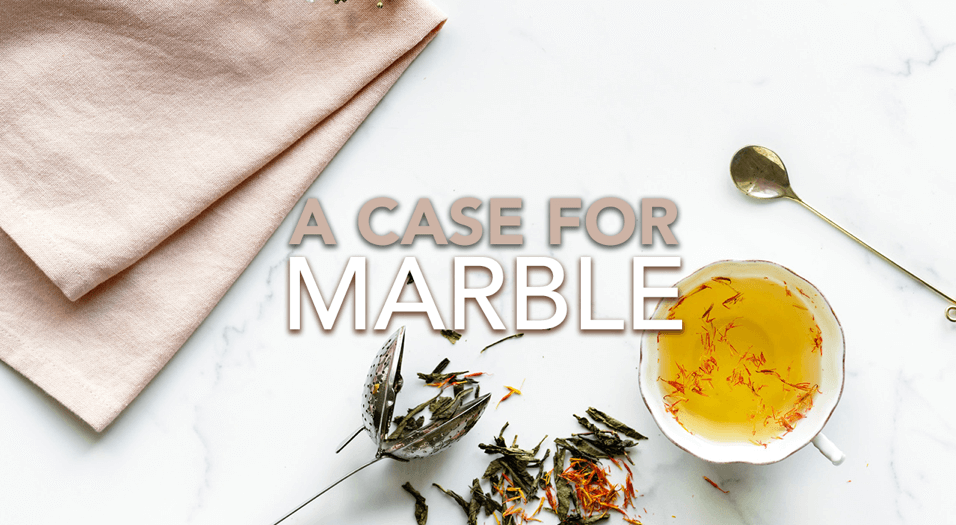Granite countertops have reigned supreme as the king of kitchen countertop materials for several years, but it is not the only natural stone on the market. Marble countertops offer many of the same benefits as granite and are making their way into more and more kitchens. Granite may be the go-to, but there is a case to be made for marble.
So, Which Should You Choose?
Both stones are really very similar. After all, both are harvested from mother earth and have been used as building materials for centuries. They have proven they can both stand up to time and the elements. In today’s kitchens, both Marble and Granite countertops will retain their beauty and durability for decades, if they are properly maintained.
Marble Origins
Marble began life as limestone, but it was subjected to extreme pressure and temperatures deep in the Earth’s crust. The result is recrystallized carbon metamorphic rock that is hard and durable. Conversely, granite is an igneous rock, meaning it is made up of tiny grains of stone material, including Mica, quartz, and Feldspar, which have been fused together by the same heat and pressure that crystallized the marble.
The tiny grains and specks remain visible in granite countertops, which are veined and patterned in various colors. Marble, on the other hand, is typically less grainy and more solid in color, with dramatic veins of colors making a bold splash through the stone. Frequently, Granite is darker, and marble is lighter, but this is not a hard and fast rule.
Maintenance
As a natural stone, both Marble and Granite are incredibly heavy and durable. Both are relatively heat and scorch proof. Marble is not as hard as granite, therefore it is more prone to nicks, scratches, chips, and dents. It may also require a bit more upkeep than granite because it is more porous. Both types of countertops need to be periodically sealed to protect them from grease and stains from spills that will seep into the stone. Additionally, Marble is sensitive to acidic liquids which may damage the surface like citrus fruits, vinegar, wine, and tomatoes. Spills should be cleaned up immediately with gentle dish soap to reduce the risk to the stone.
Marble vs. Granite – Expense
Granite countertops tend to be less expensive, but the price difference is not large. Contributing factors to consider are the overall cost of the countertops, including the countertop edging and sink styles, number of seams, and installation challenges.
Overall, both stones make beautiful countertops, backsplashes wall, and floor coverings. Considering the timeless beauty, coupled with its durability and longevity, Marble makes it a great investment for homeowners looking for elegance and luxury in their homes.
Still questions regarding these differences? Let our stone experts at Sims-Lohman walk you through the process. Give us a call to set up your consultation today!








